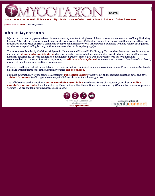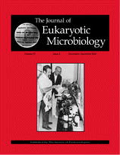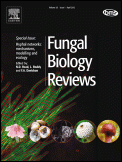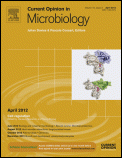
Frontiers in Fungal Biology
Scope & Guideline
Exploring the Hidden World of Fungi
Introduction
Aims and Scopes
- Fungal Ecology and Diversity:
The journal publishes studies on the ecological roles and diversity of fungi in various environments, exploring their interactions with plants, animals, and microorganisms. - Fungal Pathogenesis and Human Health:
Research on the mechanisms of fungal diseases, including pathogenicity, virulence factors, and immune responses, particularly in relation to human health and emerging fungal infections. - Biotechnology and Industrial Applications:
Focus on the use of fungi in biotechnology, including enzyme production, bioremediation, and the development of fungal-based products for agricultural and pharmaceutical industries. - Genomics and Molecular Biology:
Papers that delve into the genomic and molecular underpinnings of fungi, including gene expression, metabolic pathways, and evolutionary genomics. - Symbiotic Relationships and Mycorrhizal Studies:
Research on mycorrhizal fungi and their symbiotic relationships with plants, emphasizing their role in nutrient uptake, stress resistance, and ecosystem functioning. - Fungal Biocontrol and Pest Management:
Studies exploring the potential of fungi as biocontrol agents against pests and pathogens in agriculture, highlighting sustainable agricultural practices.
Trending and Emerging
- Fungal-Plant Interactions:
An increasing number of studies are exploring the complex interactions between fungi and plants, particularly regarding mutualistic relationships and their implications for agriculture and ecosystem health. - Antifungal Resistance Mechanisms:
There is a growing emphasis on understanding the molecular mechanisms behind antifungal resistance in clinical pathogens, reflecting the urgent need to address this public health challenge. - Fungal Metabolomics and Secondary Metabolite Production:
Research into the metabolites produced by fungi, especially those with therapeutic potential or biotechnological applications, is gaining traction. - Environmental and Climate Change Impact Studies:
Emerging research is focusing on how climate change and environmental factors influence fungal diversity, distribution, and ecological roles. - Application of Genomic Technologies:
The use of advanced genomic techniques, including CRISPR and RNA sequencing, is trending, allowing for deeper insights into fungal biology and potential biotechnological applications. - Fungal Contributions to Soil Health and Sustainability:
Research is increasingly focused on the role of fungi in promoting soil health, nutrient cycling, and sustainable agricultural practices.
Declining or Waning
- Traditional Mycology:
There is a noticeable decline in publications focusing solely on classical mycological studies, such as taxonomy and morphology, as the field shifts towards molecular and ecological approaches. - Antifungal Drug Development:
Research specifically targeting the development of new antifungal agents has decreased, possibly due to a saturation of existing knowledge and a shift towards understanding resistance mechanisms. - Fungal Taxonomy,:
The detailed taxonomic studies of fungi appear to be waning, as more emphasis is placed on functional roles and ecological impacts rather than classification alone. - Basic Fungal Physiology Studies:
Research focused on fundamental physiological processes in fungi has become less frequent, with more attention now on applied and ecological aspects.
Similar Journals

MYCOTAXON
Fostering a Deeper Understanding of FungiMYCOTAXON is a peer-reviewed journal dedicated to the field of mycology, focusing on the taxonomy, systematics, and ecology of fungi. Published by MYCOTAXON LTD, this journal plays a crucial role in advancing our understanding of fungal biodiversity and its significance within various ecosystems. Although it currently does not offer open access options, its contributions are vital to the scientific community, especially with its established presence since 1989. With an HIndex reflecting its relevance and attracting a dedicated readership, MYCOTAXON is recognized within the Q4 quartile in both Ecology, Evolution, Behavior, and Systematics, and Plant Science categories as of 2023. This places it among a critical cohort of journals that contribute to the understanding of ecological dynamics and plant-fungal interactions. Researchers, professionals, and students can benefit from the insights provided in MYCOTAXON, making it an indispensable resource for anyone involved in the study of fungi.

MYCOSES
Driving innovation in dermatology and infectious disease.MYCOSES is a renowned academic journal published by Wiley, specializing in the fields of Dermatology, Infectious Diseases, and general Medicine, with a commendable focus on mycological research and its clinical implications. Established in 1957, this journal has significantly contributed to advancing our understanding of fungal diseases, offering a platform for high-quality research that ranks among the top in its categories—achieving Q1 status in Dermatology and Q1 in Medicine (miscellaneous), while maintaining a strong Q2 ranking in Infectious Diseases. With an impressive Scopus ranking of #5 in Medicine - Dermatology, MYCOSES occupies a pivotal position in the dissemination of critical findings and innovative practices within the scientific community. Although it is not an open-access journal, MYCOSES continues to attract a wide array of researchers, professionals, and students seeking to enhance their knowledge and keep abreast of the latest developments in mycology. Overall, MYCOSES not only serves as an essential resource for academia but also plays a vital role in shaping future research directions and clinical approaches to fungal infections.

JOURNAL OF EUKARYOTIC MICROBIOLOGY
Exploring the Microbial World of EukaryotesJOURNAL OF EUKARYOTIC MICROBIOLOGY, published by WILEY, stands as a vital resource within the field of microbiology since its inception in 1993. With its ISSN 1066-5234 and E-ISSN 1550-7408, this journal provides a platform for the dissemination of high-quality research focused on the biology of eukaryotic microorganisms, including fungi, protozoa, and algae. The journal currently holds a Q3 ranking in the microbiology category, highlighting its significant contribution to scientific discourse in the field. With a multi-disciplinary approach, it encourages submissions that push the boundaries of understanding in areas such as microbiological ecology, phylogenetics, and molecular microbiology. While it does not offer open access, it remains widely accessible to researchers and academics through institutional subscriptions. As the journal progresses towards its converged years ending in 2024, it continues to be a beacon for students, professionals, and researchers alike who seek to explore and advance their understanding of eukaryotic microorganisms.

JOURNAL DE MYCOLOGIE MEDICALE
Connecting Science and Medicine in MycologyJOURNAL DE MYCOLOGIE MEDICALE is a premier publication in the field of infectious diseases, particularly focusing on the study of mycology and its clinical implications. Published by MASSON EDITEUR, this esteemed journal is based in France and has been disseminating valuable research since its inception in 1994. With an ISSN of 1156-5233 and an E-ISSN of 1773-0449, it plays a critical role in advancing knowledge in mycological infections, positioning itself in the Q3 category for infectious diseases as per the 2023 quartiles. As indicated by its ranking in Scopus, ranking #142 out of 344 in the medicine-infectious diseases category, the journal maintains a prominent presence within the academic community, appealing to researchers, healthcare professionals, and students alike. Although access options are not open access, the journal endeavors to promote a deeper understanding of mycological studies that are crucial for combating ongoing and emerging infectious threats. As it continues to converge on new findings up to 2024, JOURNAL DE MYCOLOGIE MEDICALE remains an essential resource for those invested in the critical intersections of mycology and medicine.

Fungal Biology Reviews
Advancing Knowledge in Fungal BiologyFungal Biology Reviews is a premier academic journal published by Elsevier Science Ltd, focusing on the rapidly evolving field of fungal biology. With an ISSN of 1749-4613 and an E-ISSN of 1878-0253, this journal has established itself as a leading resource for researchers, academics, and professionals dedicated to advancing our understanding of fungi and their ecological, agricultural, and medical implications. As a testament to its impact and quality, Fungal Biology Reviews holds a distinguished Q1 classification in both Microbiology and Plant Science categories for 2023, with a notable rank of 26 out of 182 in the Microbiology category. The journal uniquely blends comprehensive reviews that synthesize current research findings with forward-looking perspectives that pave the way for future studies, making it indispensable for anyone involved in fungal research. Although it operates under a traditional access model, its commitment to fostering impactful scholarship ensures that it remains relevant and widely cited within the academic community. Spanning from its inception in 2007 through to its projected conclusion in 2024, Fungal Biology Reviews continues to shape the framework for future discoveries in fungal biology.

mSphere
Championing open access to revolutionary microbial research.mSphere is a leading open-access journal published by the American Society for Microbiology, dedicated to the dynamic fields of Microbiology and Molecular Biology. Since its inception in 2016, mSphere has rapidly established itself as a reputable source of scholarly research, achieving notable impact factors and excellence within the academic community. The journal ranks in the top quartile (Q1) amongst its peers in Microbiology, and Q2 in the field of Molecular Biology, demonstrating its significance and relevance through Scopus rankings—specifically, it holds the #42 spot out of 182 in the Microbiology category and #108 out of 410 in Molecular Biology. With an editorial commitment to advancing the understanding of microbial and molecular sciences, mSphere provides an accessible platform for researchers, professionals, and students alike to disseminate groundbreaking findings. The journal promotes rigorous peer-review and invites innovative contributions aimed at enhancing microbial research mobility and molecular exploration. Accessible openly since 2016, mSphere continues to thrive as an influential publication driving scientific dialogue and discovery in the microbiological sciences.

CURRENT OPINION IN MICROBIOLOGY
Advancing microbiology through insightful reviews.CURRENT OPINION IN MICROBIOLOGY is a prestigious academic journal published by CURRENT BIOLOGY LTD, dedicated to advancing the field of microbiology through timely and insightful reviews. With an ISSN of 1369-5274 and an e-ISSN of 1879-0364, this journal has established itself as a leading source of knowledge in various subfields, consistently achieving a Q1 ranking in Infectious Diseases and Microbiology for 2023. Operating from the United Kingdom, CURRENT OPINION IN MICROBIOLOGY serves a critical role for researchers, clinicians, and students alike by disseminating groundbreaking findings and fostering discussions that shape the future of microbiological research. The journal's rigorous selection process ensures that only high-quality articles are published, reflecting its strong impact factor and high percentile rankings across relevant Scopus categories. Although it does not follow an open-access model, its comprehensive scope and valuable contributions to the medical and scientific community underscore its importance as an essential resource for advancing our understanding of microbial sciences.

FUNGAL DIVERSITY
Exploring the Unseen: The Science of FungiFungal Diversity is a premier academic journal dedicated to advancing the science of mycology, encompassing ecological, evolutionary, and biological research involving fungi. Published by Springer, this journal has established a significant presence in the academic community since its inception in 1998, and it continues to thrive with a convergence period extending to 2024. Holding a prestigious Q1 ranking in several categories — including Ecology, Ecology, Evolution, Behavior and Systematics, and Plant Science — Fungal Diversity showcases cutting-edge research that influences ecological management, conservation, and biodiversity studies. With its notable positions in Scopus rankings, including being ranked #1 in Environmental Science - Ecology, the journal serves as an essential resource for researchers, professionals, and students interested in the complex interplay between fungi and their environments. Although it does not currently offer open access, interested readers can benefit from the journal's rich repository of peer-reviewed articles, making Fungal Diversity a vital component of the scientific literature landscape.

MYCOPATHOLOGIA
Pioneering research in mycology for a healthier future.MYCOPATHOLOGIA, published by Springer in the Netherlands, stands as a pivotal journal in the fields of mycology, plant science, and veterinary microbiology. With its extensive history dating back to 1938, this journal has consistently contributed to the understanding of fungal pathogens and their impact on both agriculture and animal health. It currently holds impressive rankings in Scopus, including Q1 status in Agronomy and Crop Science, and Q2 rankings in Applied Microbiology and Biotechnology, demonstrating its influence and rigor in the scientific community. Researchers and professionals benefit from its curated, high-quality studies which address critical areas such as plant-pathogen interactions and veterinary mycology. While not open access, MYCOPATHOLOGIA emphasizes comprehensive research output and serves as a vital resource for advancing knowledge and fostering innovation in its disciplines. The journal remains committed to disseminating valuable insights that drive forward both academic inquiry and practical applications in related fields, ensuring its relevance and importance in contemporary research.

MYCOSCIENCE
Pioneering Insights into Mycology and BiodiversityMYCOSCIENCE, published by the Mycological Society of Japan, is a prominent peer-reviewed journal that serves as an essential resource in the fields of ecology, evolution, behavior, and systematics, highlighted by its Q2 ranking in the 2023 category quartiles. Established in 1994 and continuing through 2024, the journal focuses on mycological research, providing insights into the interconnected worlds of fungi and their ecological roles. With an ISSN of 1340-3540 and an E-ISSN of 1618-2545, MYCOSCIENCE aims to disseminate high-quality research that addresses current issues and trends within the discipline. Despite not being an open-access journal, it makes a significant contribution to advancing fungal biology and its applications in agriculture and environmental science, making it an invaluable asset for researchers, professionals, and students alike. Located in the vibrant academic environment of Tokyo, Japan, MYCOSCIENCE stands out for its dedication to fostering a deeper understanding of mycology and its implications for biodiversity and ecosystem health.